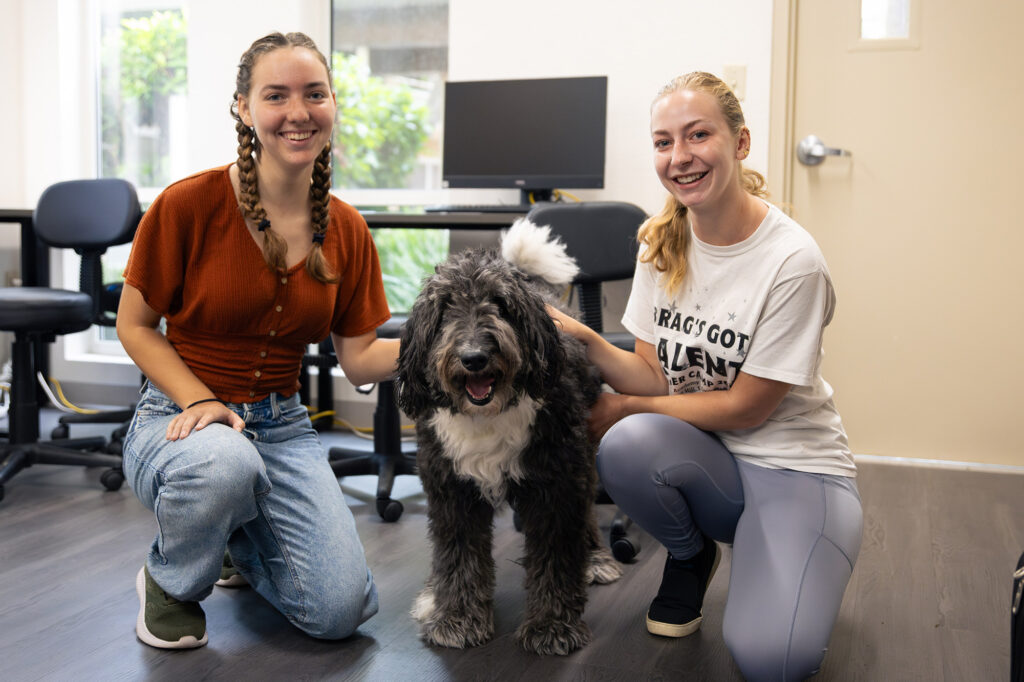Since July, Orlo has played the game 47 times, totaling 12 hours of play time. As each level increases, it becomes more difficult to reach the black square. To move forward, you must move the blue dot to the black square within a certain time limit and press the direction button less than 7 times. To pass the level, he must meet these requirements twice in a row. Oruro has now reached the final level, level 6, and if he can pass, it will be considered a success according to the research criteria.
This project is one of the few supported by the Belgium Family Engaged Learning Endowed Fund. Established in 2021 by Mark and Beverly Belgya, parents of Eckerd Marine Science alumnus Karli Belgya, who graduated in her 2021, the fund allows students of any major to pursue hands-on training through research, service learning, or internships. We provide lasting support to ensure a successful learning experience.
Sarah Nadler, a visiting assistant professor of animal studies and psychology, adopted Oro as a therapy dog. (He is still in training.) The dog, estimated at 2 years old, plays an active role at Nadler's Psychotherapy and Counseling Services in downtown St. Petersburg, Florida.
Therapy dogs work with clinical experts to improve a person's physical, social, emotional and cognitive functioning, Nadler said. They differ from service dogs because they can work in both individual and group settings. Service dogs are trained for specific tasks to help one person. Therapy dogs are also different from emotional support animals, which are meant to provide companionship within the home.
In addition to meeting with customers, Orlo recently learned how to play video games. This study was first conducted using sea lions by Dr. Kelly Winship, a scientist working for the National Marine Mammal Foundation. She conducted research with her three adult California sea lions, introduced them to her computer system, and developed a training protocol. Oruro is currently following suit. He is the first dog to use this system.


